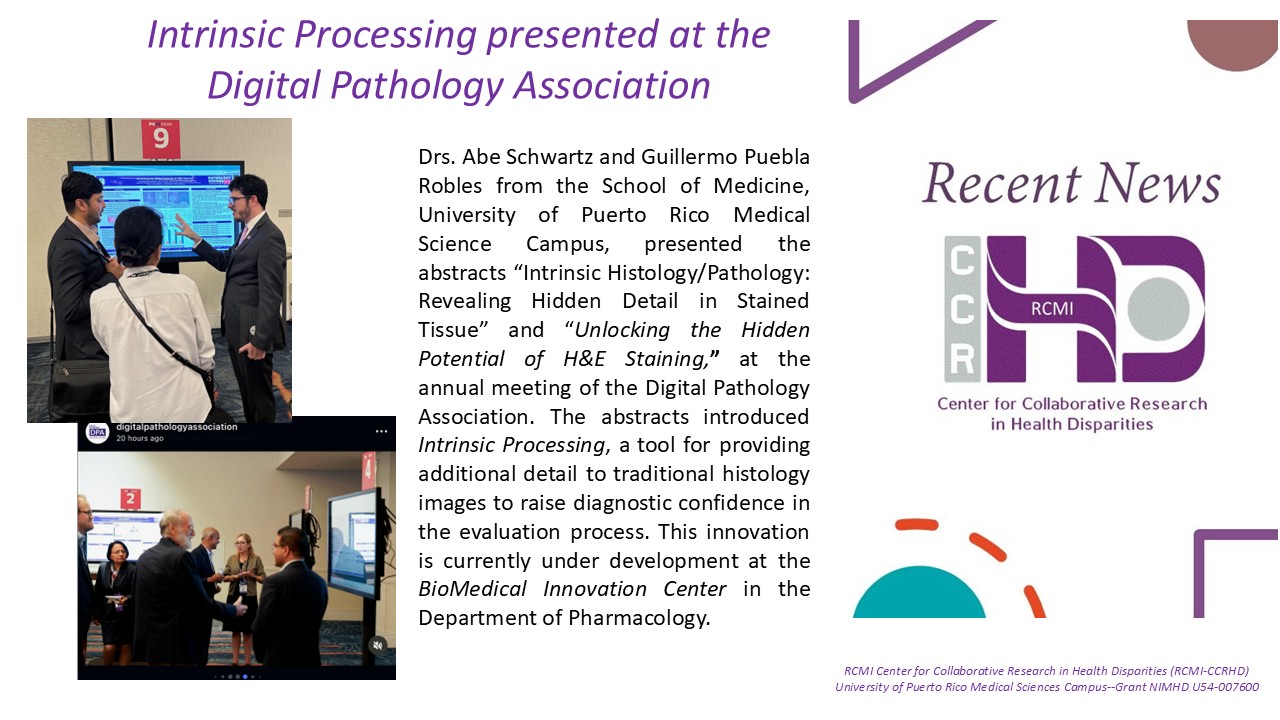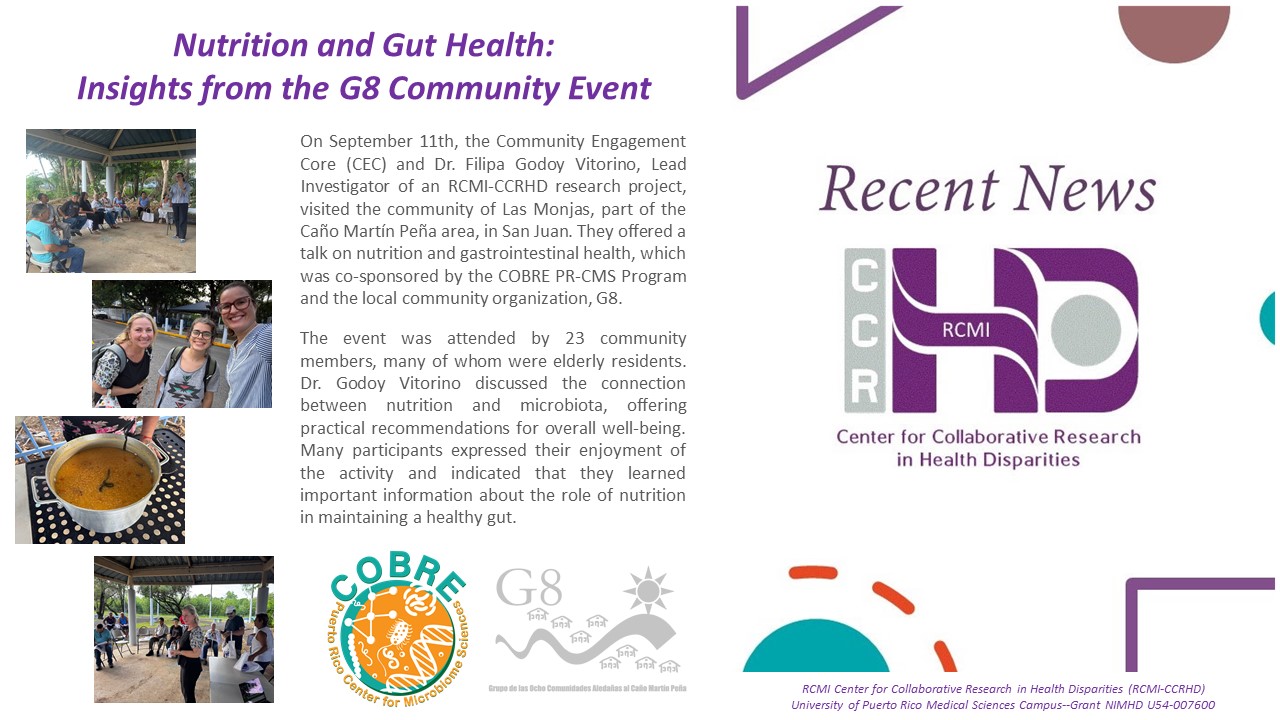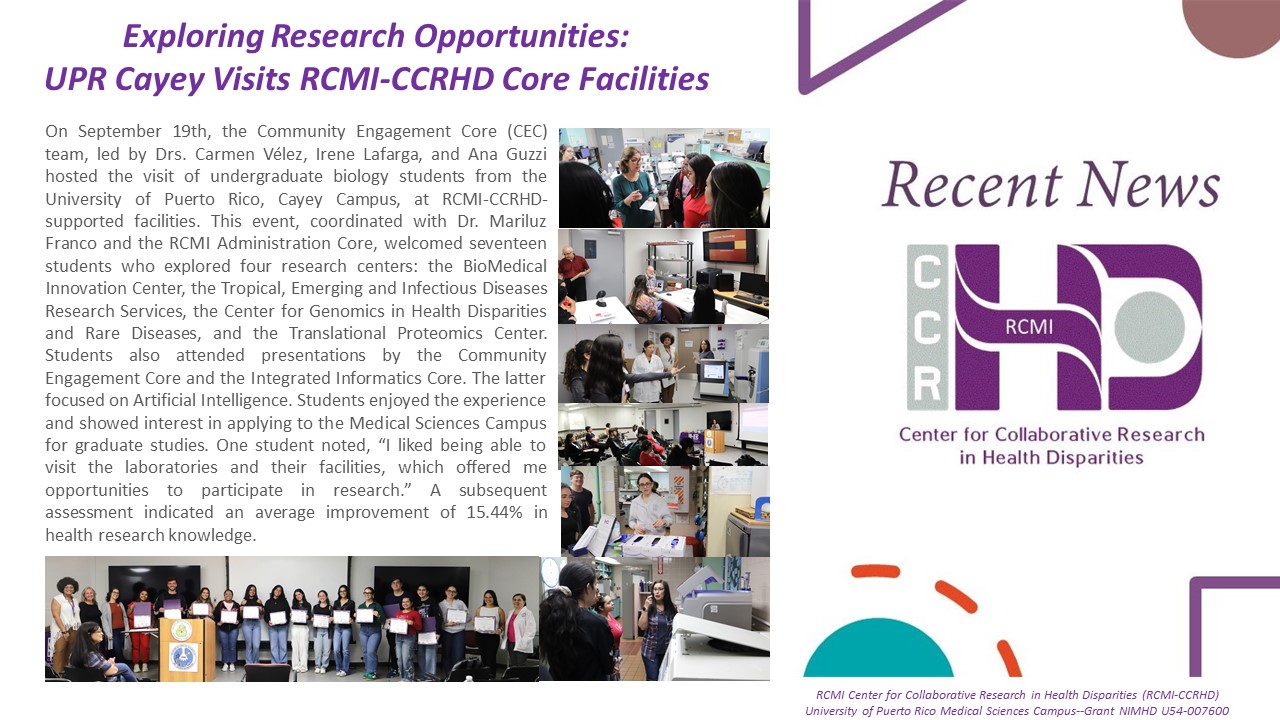Our Research Projects
Two translational research projects, encompassing the areas of basic biomedical, behavioral and clinical research, and representing two of the six schools of the UPR-MSC are currently supported by the CCRHD.
Read more here
Two translational research projects, encompassing the areas of basic biomedical, behavioral and clinical research, and representing two of the six schools of the UPR-MSC are currently supported by the CCRHD.
Read more here
 Intrinsic Processing presented at the Digital Pathology Association |
 Nutrition and Gut Health: Insights from the G8 Community Event |
 Exploring Research Opportunities: UPR Cayey Visits RCMI-CCRHD Core Facilities |